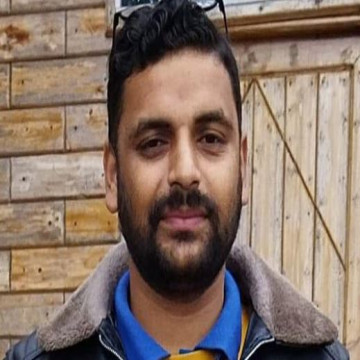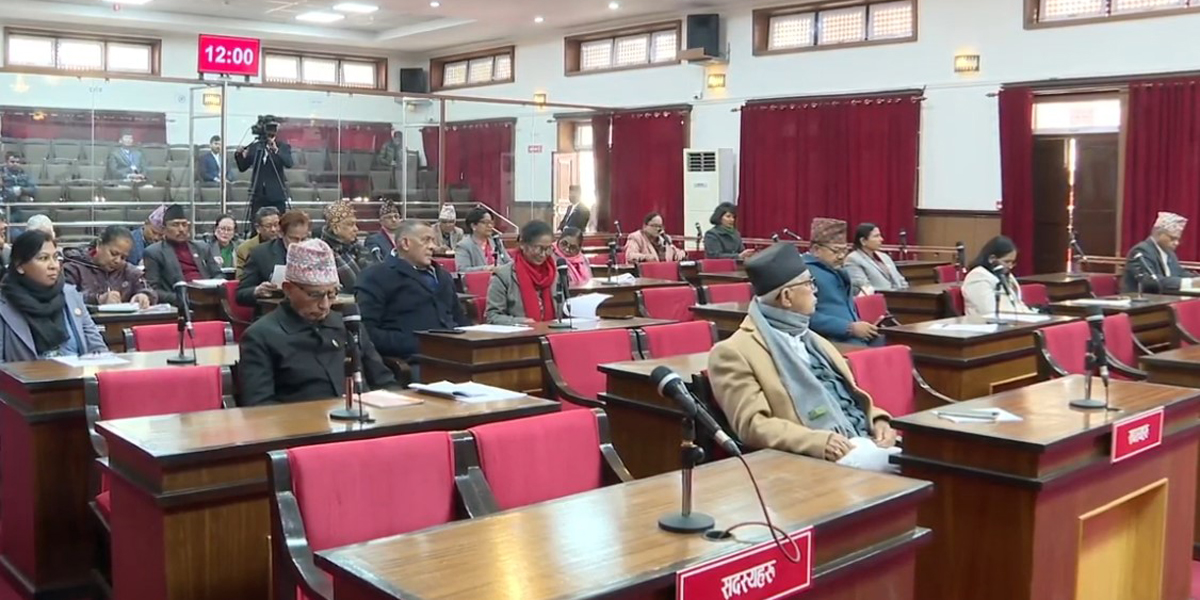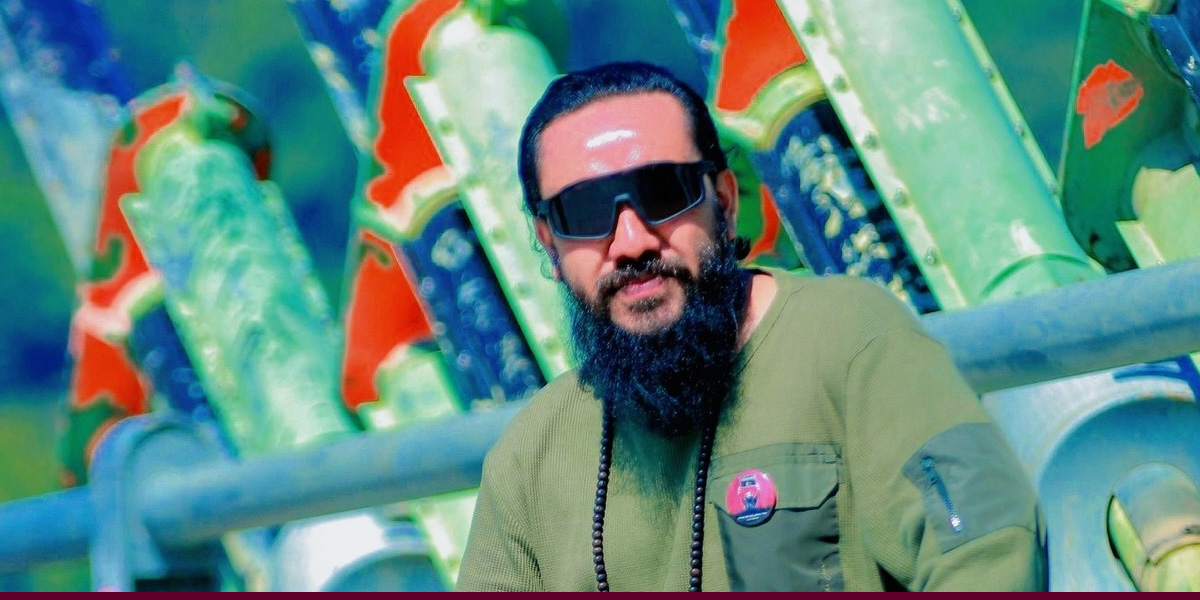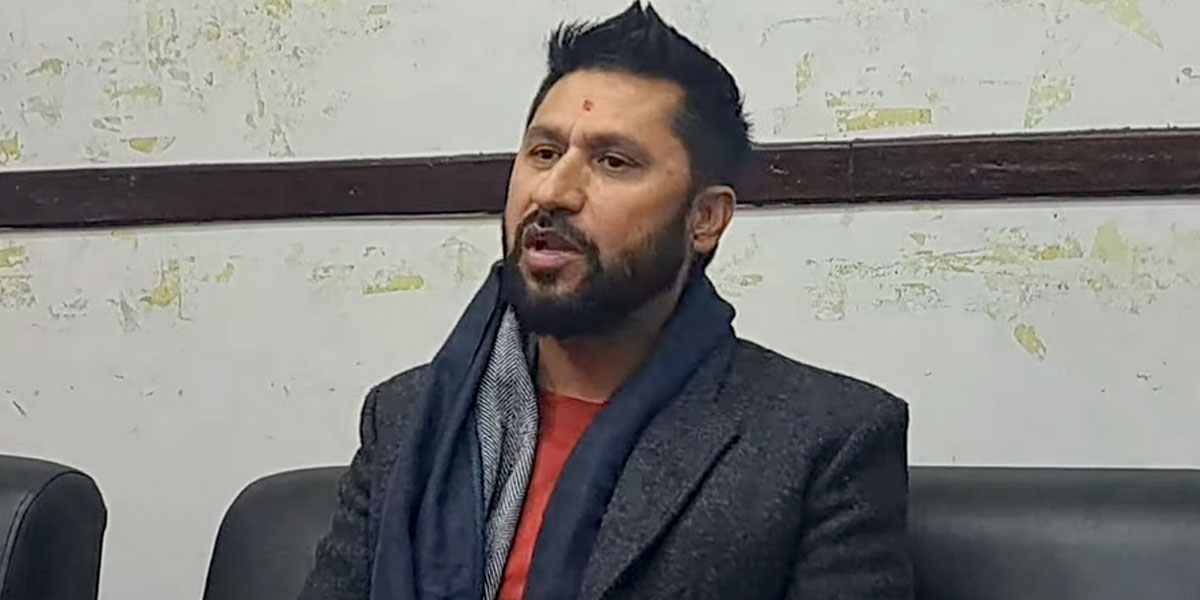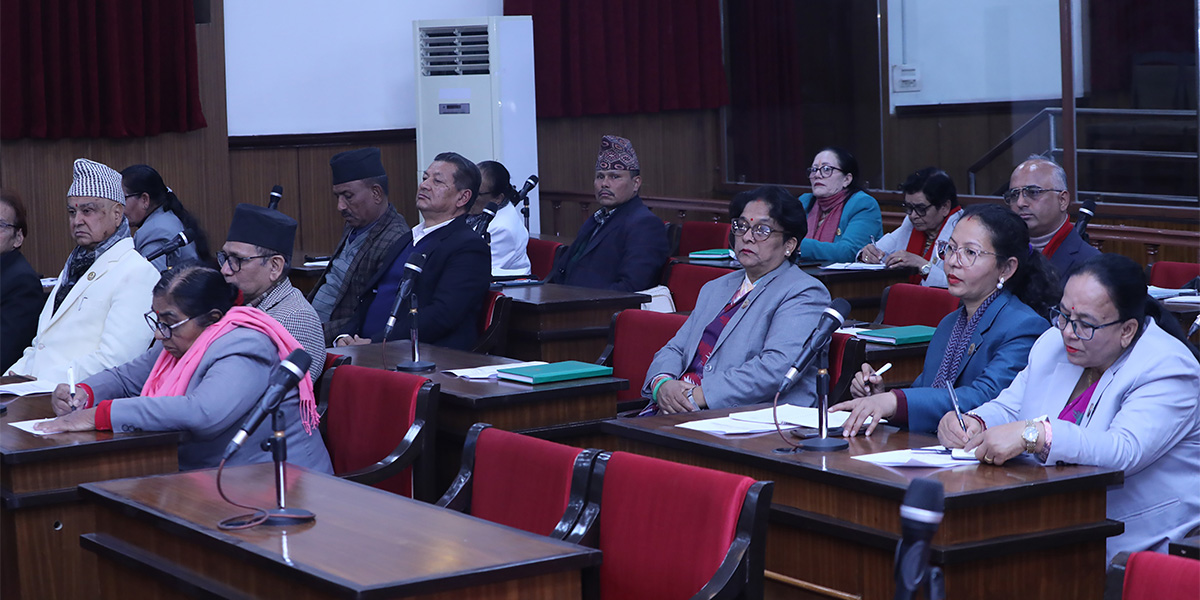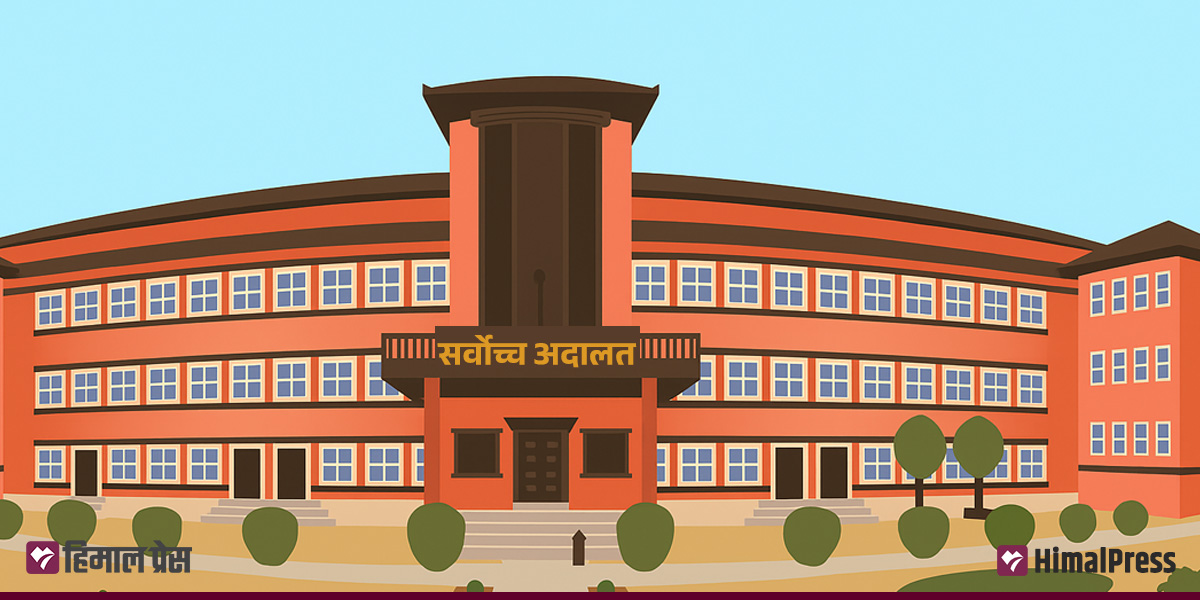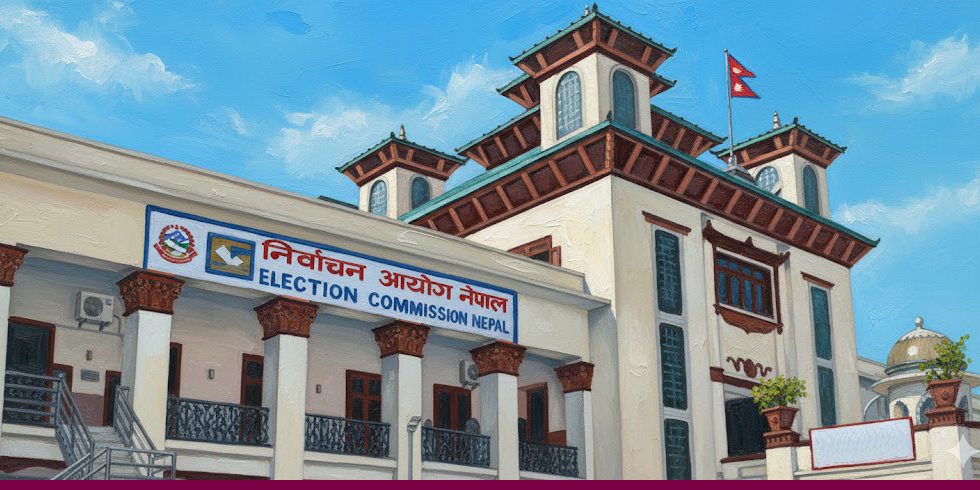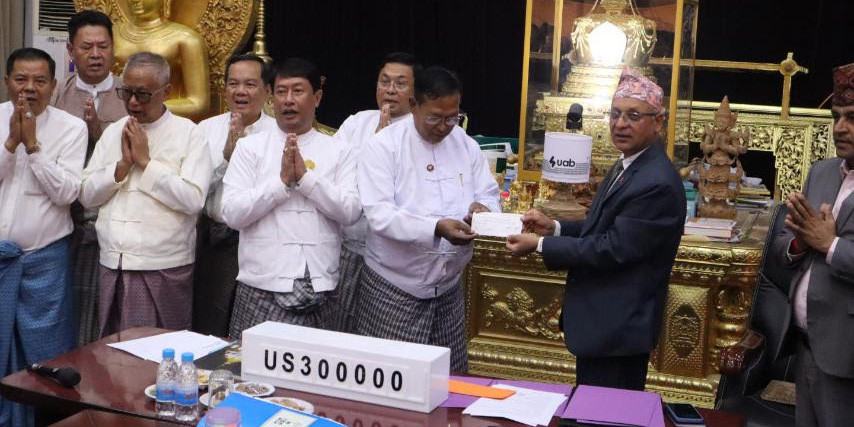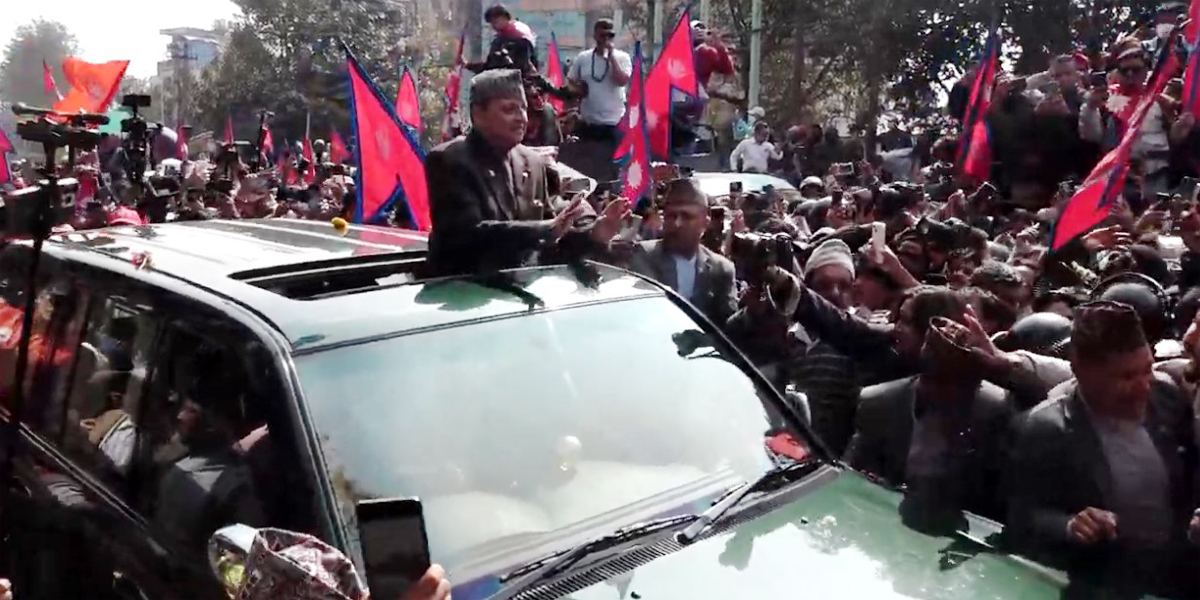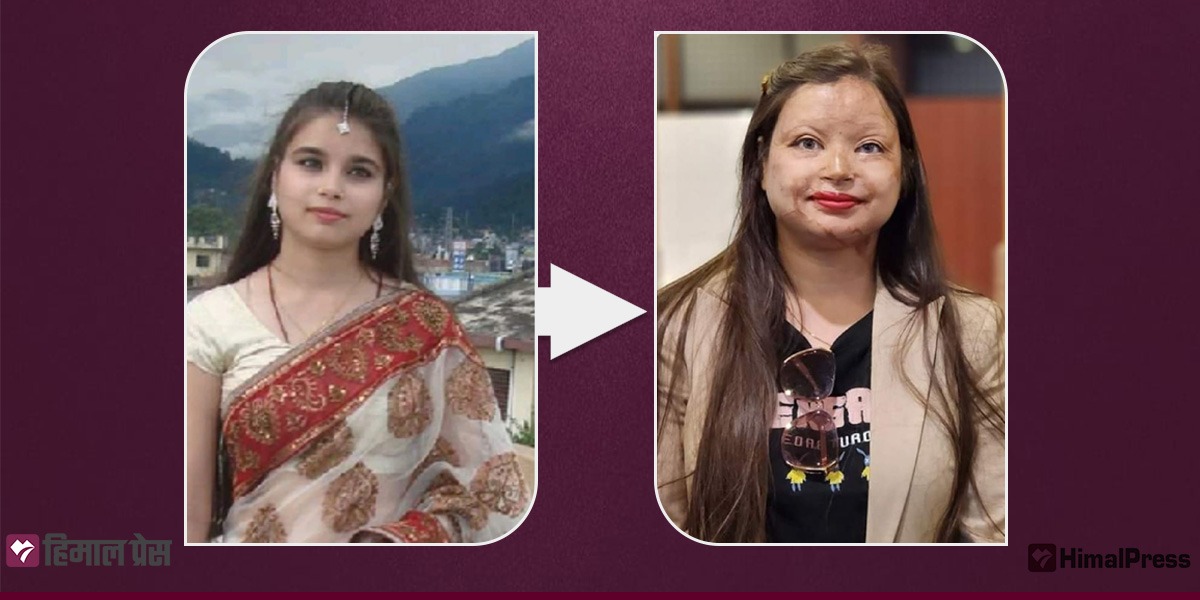 Bindabasini Kansakar: Before and after the acid attack
Bindabasini Kansakar: Before and after the acid attack
KATHMANDU: After an acid attack severely disfigured her face, Bindabasini Kansakar’s parents spent over Rs 10 million on her treatment. Despite extensive medical care, her face could not be restored to its original condition. The list of pain she endured during this process is long.
Bindabasini, now a member of the House of Representatives, has put her suffering behind and is actively working on creating legislation against acid attacks. She is hopeful that others will not have to endure the hardships she faced once the law is enacted. A central committee member of the Rastriya Swatantra Party (RSP), Bindabasini says her efforts are now bringing her happiness. After the ‘Human Body Burns Control and Punishment Bill, 2024 was registered in the House of Representatives, hope for life has blossomed in her. She also feels satisfied that she can do something for victims like herself in society.
RSP registered the Bill under Bindabasini’s leadership. Kansakar is the most experienced lawmaker in RSP in terms of burn pain and suffering. That is why she took the initiative to prepare this Bill. “I didn’t seek advice from lawyers or assistance from NGOs for this Bill. I have become an expert on burns myself. The pain of burns is felt only by those who have experienced it,” she said. “I prepared the Bill with the help of leaders from my own party.”
“Everything Was Lost”
Bindabasini was studying in 12th grade. One day, a young man proposed here. The young Bindabasini couldn’t decide. “After he proposed, I told him to talk to my parents and not to pressure me alone,” she recalls. That request turned out to be so costly for her that she has to bear its consequences for a lifetime.
On April 22, 2013, she was at her father’s utensil shop near Peepal Bot in Hetauda. A person with whom she had a casual acquaintance came to the shop. He threw something on her face. She could not immediately identify what the liquid substance splashed on her face was. At first, she thought it might be water. When it started to hurt and burn, she felt a chill run down her spine.
“The pain started increasing. I realized it wasn’t water,” Bindabasini remembers. She ran towards her home. “I went home screaming. “My father realized immediately that acid had been thrown on my face.” Water was poured on Kansakar’s face to wash away the acid. “Even after pouring lots of water, the acid didn’t go. The burning did not stop,” she recounts
Lengthy Treatment
She was immediately rushed to Hetauda Community Hospital. The hospital applied some ointment to her face. “After applying the ointment, the problem worsened. I think if they had only washed it, my face would have been less damaged,” she said.
The treatment at the community hospital didn’t do her any good. She was later taken to an eye hospital where the ointment applied by the community hospital was washed off. But no further treatment could be done. When further treatment was not possible in Hetauda, she was referred to Kathmandu. She went to B&B Hospital in Lalitpur. But further treatment was not possible there either.
Hospitals kept changing, but the pain didn’t subside. At Nepal Medical College Teaching Hospital, the burnt skin on her face was removed and plastic surgery was performed. She underwent surgery five times in three months. She underwent plastic surgery to stretch the skin. Then came the need for cosmetic surgery. Since it was not possible in Nepal, she decided to go to Tamil Nadu where a friend of her uncle was living. Her treatment began at Devadas Hospital in Tamil Nadu. She still goes there occasionally for treatment. Ten years have passed since the incident.
“I’ve had so many surgeries on my face. But my face couldn’t be restored to how it was before,” she shares.
Bindabasini’s life took a turn after the incident. Her studies were disrupted, and she couldn’t progress beyond 12th grade. Although the treatment made it impossible to go to school, she did not want to show her face to society.
Shortly after the acid attack on Kansakar, similar incidents happened to others. Most of the victims were young women. A similar incident occurred in 2014 in Basantapur, Kathmandu. Two teenage girls were attacked with acid. It was then that she felt staying indoors was not the solution. “Then decided that day not to cover my face when going out,” she said.
Not only that. She also made a resolution to fight against acid attack incidents.
“I reached a point where I wasn’t afraid of society. At an event in Basantapur, I raised my voice on the need to ban the indiscriminate sale of flammable substances like acid and for strict action against perpetrators,” Bindabasini said. She began to raise her voice for justice for other victims.
After establishing herself as an activist, she also got a job at Kumari Bank. “In our society, you can only survive if you don’t lose courage,” Kansakar says, “If I had stayed inside the house, I would still be anonymous today.”
One Phone Call Brought Her to Politics
In 2022, she had heard that Rabi Lamichhane had formed the RSP. The country was heading towards elections. Bindabasini was in India for treatment. One day, she received a call from social activist Ujjwal Bikram Thapa whom she had known while working on burn-related issues. “RSP has called for applications from candidates interested in becoming proportional lawmakers of the party. You should apply too,” Thapa told her.
Bindabasini, however, had no interest in politics. She replied that she would consult at home. Thapa persuaded her a lot. Fifteen minutes later, she got a call from Lamichhane himself. “I couldn’t refuse Ravi dai’s proposal,” she said.
She filled out the form and sent it back to the party. After returning from India, she became actively involved in party work. She even had to quit her bank job.
Bindabasini’s entry into politics was easy. But entering parliament became difficult for her. She was placed third on RSP’s proportional list – Sumana Shrestha and Dhaka Kumar Shrestha were ahead of her from her cluster. Sumana and Dhaka Kumar became lawmakers. Since she had already left her bank job, life became difficult for her.
However, after the RSP took disciplinary action against Dhaka Kumar, her entry into the parliament was confirmed. She was sworn in on May 29 last year.
Legislation Against Acid Attacks
She raised the issue of burns in her maiden speech in parliament on June 15, 2023.
Bindabasini was disappointed that burn-related issues were not being raised in parliament. “So far, there is no law in Nepal on acid attacks. Even the person, who threw acid on me, has been charged with attempted murder. No one is taking such attacks seriously. This is why I took the initiative to draft the bill herself.
RSP registered the Bill on August 13. The bill proposes to establish a relief fund for burn victims. There is a provision to make an annual contribution of Rs 100 million from the government. “So far, I haven’t received compensation either. It’s not clear who will give it,” Bindabasini says.
As per the Bill, the Nepal Electricity Authority (NEA) and Nepal Oil Corporation (NOC) should also contribute one percent of the total tax that they paid to the state to the fund. Likewise, it states that companies involved in the trade of flammable substances should contribute 0.5% of the tax paid to the state to the fund. Similarly, 0.5% of the tax collected from alcohol and tobacco products should be contributed to the fund.
It has proposed that provincial and federal hospitals, as well as medical colleges with more than 100 beds, whether in the public or private sector, must allocate at least 2% of their beds as well as arrange emergency services for burn victims. Likewise, the bill proposes imprisonment from five to ten years and a fine of Rs 300,000, depending on the degree of the offense, to the perpetrators.
Politics is a 24/7 Job
Before entering politics, Bindabasini had little political knowledge. She used to blame leaders for not developing the country. After joining politics, her perspective has changed. “Other professions have fixed times. But in politics, you have to work 24 hours a day. If you can’t deliver, people will become frustrated,” she said.
Bindabasini claims that politics now will be different from how it was in the past. “Now we need to work, not just talk,” she said. “There should be conditions to study and work in the country itself. Even when sick, one shouldn’t have to go abroad for treatment. This is what we want.”

